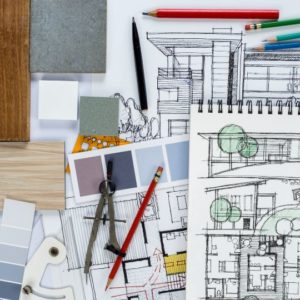Toll Free
(877) 698-8473Transforming your home with a remodel can do more than change your house—it can change your life. If you’ve been struggling in a house that doesn’t quite meet your needs, taking out a few walls and changing up the kitchen layout may be just the thing to make everything flow like you need it to. A small remodel could make you fall in love with the house all over again.
Doing these types of remodeling projects, whether it’s just one room or the whole house, makes a lot of trash. You may be dealing with everything from old flooring to cabinets, bathtubs to drywall. It’s a lot of debris, and it has to go somewhere. There are a few different ways you can handle this debris, but not all of them are easy. When you’re doing a remodel, especially if you’re doing it yourself, you want at least one part of the project to be something you don’t have to stress over. By looking into easy debris removal options, you can mark “handle the trash” off your to-do list.
Dealing with debris becomes even more of a pain if you own rental properties you have to remodel periodically or have a small construction company. Fortunately, many of these potential solutions work for all debris regardless of where it came from. Here are a few tips for dealing with any sort of construction debris.
Make a Plan
No renovation is going to turn out well if you don’t have a plan. Before you start with anything, take the time to think about what you want to do, how much money you have, and your end goal. You might want to change up all the flooring in your home, remodel the kitchen, and redo your bathroom, but is it feasible to do that all at once? Your budget may say no.
Even if you have the budget, think about how disruptive all of that would be to your life. You would likely have to move out during the renovation. Changing up the flooring in your entire house also means moving your furniture out. You’d likely have to put at least your large items in storage. It would essentially be like moving, and that’s a lot of work to add to the stress of a remodel.
It may be easier for you to break down your grand remodel plans into phases. This may mean you stretch out the work, but it also means you don’t have to move out for several weeks or more. However, if you’re doing the remodel so you can sell the property, moving out into a temporary rental may not be a bad idea. An empty house is much easier to renovate than one that has furniture in it, even if it’s only in a few rooms. If you’re renovating your home to make it more accessible to an elderly family member or a wheelchair user, you’ll also want to have everything done as soon as possible.
Identify the Debris
This may sound like an odd first step, but it is important to know what type or types of debris you’re going to be dealing with. This will impact the debris removal. For example, if you plan on making use of your city trash bins or the city’s bulk trash pickup, you need to know what they will accept. You may not be allowed to put anything that falls under the category of construction debris, including drywall, asphalt, concrete, or heavy materials in your dumpster. If you put these items out for the city to collect, at best they will ignore them. At worst, you could get fined.
In most home remodel projects, you’re going to have old flooring, cabinets, drywall, wood, tile, and brick. You may have old light fixtures and appliances, too, as well as old sinks, tubs and shower surrounds. Some dumpster and debris box rentals can only be used for specific debris.
For example, some containers are not designed for very heavy materials, so you can’t put concrete or dirt in them. Others may be reinforced and can accept this debris. If you put the wrong debris in a box, be ready for a fine. That’s why it’s important to know what trash you’ll have and rent the debris box that matches your needs.
Remember that few dumpster rental companies will accept hazardous materials. If you know you’ll have anything that falls into this category, including refrigerant, propane, batteries, wet paint, or other chemicals, you’ll need to make a plan to properly dispose of them.
Know What Size and Type of Debris Box You Need
Now that you have an idea of what’s going in the dumpster, you can more accurately determine what type of dumpster you need. You know what’s going in it, so first make certain the type of dumpster you’re considering can hold that debris. Second, think about how much debris you’re going to have. If you’re remodeling a small bathroom, you won’t have a lot. However, if you’re doing the kitchen, bathroom, and putting in new flooring throughout the house, you’re going to need a good-sized dumpster to hold all of that.
Dumpsters do range in size. Some of the smallest hold ten cubic yards of debris. Often, this is perfect for a home renovation. Debris boxes of this size can also easily fit in your driveway without taking up too much room or blocking access to your garage. If you’re remodeling your whole house, you may want to upgrade to a dumpster that holds 20 cubic yards, which is about eight truckloads of debris. For business owners, construction crews, or those who are renovating entire apartment complexes, the 30- or 40-cubic yard dumpsters might be needed.
Set Your Schedule
There’s no point in scheduling your dumpster to be delivered several days before you have debris to put in it. That’s just a waste of money. Before you schedule any rentals or contractors, sit down and make a timeline that matches your schedule. You may need to take off work or arrange for pets or even your children to stay somewhere else during the remodel. If you’re dealing with rental property, you’re going to want to have time to do a walkthrough to determine exactly what needs to be done. You may also have to deal with stuff the previous tenants left behind.
Once you have your potential schedule outlined, start lining up contractors and rentals. Start with the most important contractor. If they can’t meet your schedule, there’s no point in lining up other services since you’ll just have to reschedule everything. Dumpster rental may actually be towards the end of your list. After all, there’s no point in having a dumpster on-site if no one is there to use it.
Another factor to keep in mind is material availability. Can you get the materials you need on time? If there are any delays, it can kill all your momentum. While there may be a few things you and your contractors can do without specific materials, eventually, you’ll come to a standstill. Check availability and get everything ordered as soon as you can. If there’s any question about whether a product will arrive on time, have a backup or two planned just in case.
Know How to Pack Your Dumpster
When putting things into your dumpster or debris box, you may be very tempted to just throw things in. It’s just trash, right? It can be a lot of fun to toss those ugly old cabinets into the dumpster and watch them break apart. While that’s tempting, it also isn’t very efficient. If you want to get the most out of your dumpster, you want to load it so that there aren’t any gaps or large spaces between large pieces of debris.
This may not be a concern if you’re filling the dumpster with broken-up asphalt or other loose stuff, but if you have old furniture, appliances, and cabinetry, there will be spaces. Put other debris inside cabinets if you can, and line up debris, so there’s as little space between it if possible.
The other issue with throwing things in the debris box is that it can create a safety hazard. As satisfying as it may be to throw in a glass pane or an old mirror just to see it shatter, think about the risks. Yes, a dumpster is contained and should keep all the shards of glass from going anywhere, but do you really want to risk getting glass in your eyes?
Where Can You Rent a Debris Box?
Ready to rent a dumpster or debris box? If you’re in the Windsor, CA, area, there’s one name that stands above the others: Pacific Sanitation. We have a wide variety of options, including dumpsters that can handle concrete, brick, and other heavy materials. Whether you need a small dumpster for your kitchen remodel or a large one for an apartment complex, we’ve got you covered. Contact us today to learn more or to schedule your rental.
